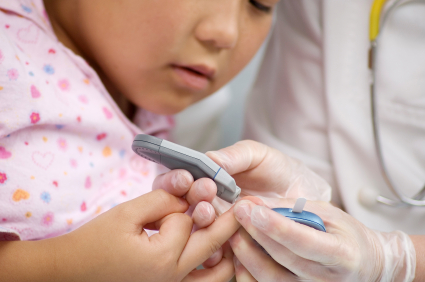To most people, November is the beginning of cold weather, warm jackets, and let us not forget the turkey and pumpkin pie! But for some, this is the month to bring awareness to the public about managing diabetes. It doesn’t matter if you have Type 1 or Type 2, latent autoimmune diabetes (LADA), or any of a number of lesser common types of diabetes, the end result is the same. Poor blood glucose control equals poor health, vision loss, kidney disease, amputations, and many more complications.
 While diabetes can be a challenging disease to manage, what we really should be talking about is how things have changed. New technology, medications, and proper care decreases the risk of complications and helps those with diabetes live longer, healthier, fulfilled lives. Where do we learn about this new lease on life? From your local Certified Diabetes Educator (CDE).
While diabetes can be a challenging disease to manage, what we really should be talking about is how things have changed. New technology, medications, and proper care decreases the risk of complications and helps those with diabetes live longer, healthier, fulfilled lives. Where do we learn about this new lease on life? From your local Certified Diabetes Educator (CDE).
A CDE is a health care professional who possesses comprehensive knowledge of and experience in diabetes prevention, prediabetes, and diabetes management. The CDE educates, supports, and advocates for people affected by diabetes, addressing the stages of diabetes throughout their lifespan. The CDE promotes self-management to achieve individualized behavioral and treatment goals that reduce risks and optimize health outcomes.
To become a CDE, one must first meet requirements of the National Certification Board for Diabetes Educators (NCBDE) and often work for an accredited diabetes education program that has met requirements of the Centers for Medicare & Medicaid Services.
So what does a CDE do? CDEs work with people living with diabetes, to help them see what is working well, and not so well, then help guide them to make changes which not only improve their health, but their lives. CDEs are versed in the latest technology for those living on the cusp, and for those who prefer maintaining status quo, but need a little more help.
 CDEs teach people how to eat healthy to prevent diabetes and for those diagnosed, how to stop after-meal spikes, how to enjoy pizza at night and still wake in-target the next morning, and generally enjoy the foods they love. They teach people about the medications prescribed, how they work, and when and how to take them. They provide support from others through diabetes education classes or a support group.
CDEs teach people how to eat healthy to prevent diabetes and for those diagnosed, how to stop after-meal spikes, how to enjoy pizza at night and still wake in-target the next morning, and generally enjoy the foods they love. They teach people about the medications prescribed, how they work, and when and how to take them. They provide support from others through diabetes education classes or a support group.
CDEs prepare young people for going out on their own, whether college or the working world. They help families send young children with diabetes to school where the CDE will work with staff, so the child’s needs can be met. They can teach grandma and grandpa how to give an injection.
Managing diabetes can be daunting. But it’s important to know that resources are available. If you, a family member or friend is struggling in managing diabetes, make sure a certified diabetes educator is part of your team to help you find health, gain confidence, and empower you to take control.
Michelle Laranko is a Certified Diabetes Educator for Cooper University Health Care. At Cooper, we believe in a comprehensive approach to care. As part of that approach, our endocrinology services emphasize education and prevention in addition to innovative diagnostics and treatment so you can better manage your illness and go on enjoying your life. Learn more about our Diabetes Education Center.
